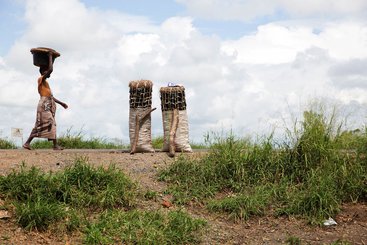‘Local’ humanitarian organisations based in areas of crisis are the first to respond to disasters, conflicts and displacement. During the Covid-19 pandemic, these actors stepped up again, delivering medical supplies, food and other relief for those directly affected by the virus and its many secondary economic and social impacts, as well as responding to other crises. Despite receiving far less recognition, support and funding than their international counterparts, these actors continued to form the backbone of many humanitarian responses during the pandemic.
This study aimed to identify what changes towards a more local aid model were happening in the context of Covid-19 and, where change was not happening, why this was the case. In order to document and analyse change at different levels, both within institutions or crisis responses, this study used a diary method. This approach enabled the authors to understand and document the dynamic politics of change and policy-making. Thirty-two humanitarian practitioners and policy-makers participated in the diary study. It also draws on data crowdsourced through HPG’s Covid-19 and local humanitarian action mapping tool.
The study found that change is happening, but slowly, since fundamental blockages in the system have not been addressed. While many international actors increasingly adopt localisation policies, in practice they continue to question the capacity of local actors to manage funds adequately, to operate at scale and to uphold humanitarian principles. As a result, there are limited efforts to trial new approaches at scale, take calculated risks and to set in motion new funding approaches.
There were standout examples – where Covid-19-related restrictions effectively ‘forced’ a more localised response – which demonstrated the value of past investment in partnerships and preparedness, effective remote technical support and new space for local leadership. But such approaches have yet to be observed among many of the sector’s largest international actors, including most UN agencies, and progress remains slow and inconsistent across different humanitarian responses.https://bit.ly/CV19LocalHumanitarianAction
-
Data visualisation | Local humanitarian action during Covid-19
Read more about Data visualisation | Local humanitarian action during Covid-19.





